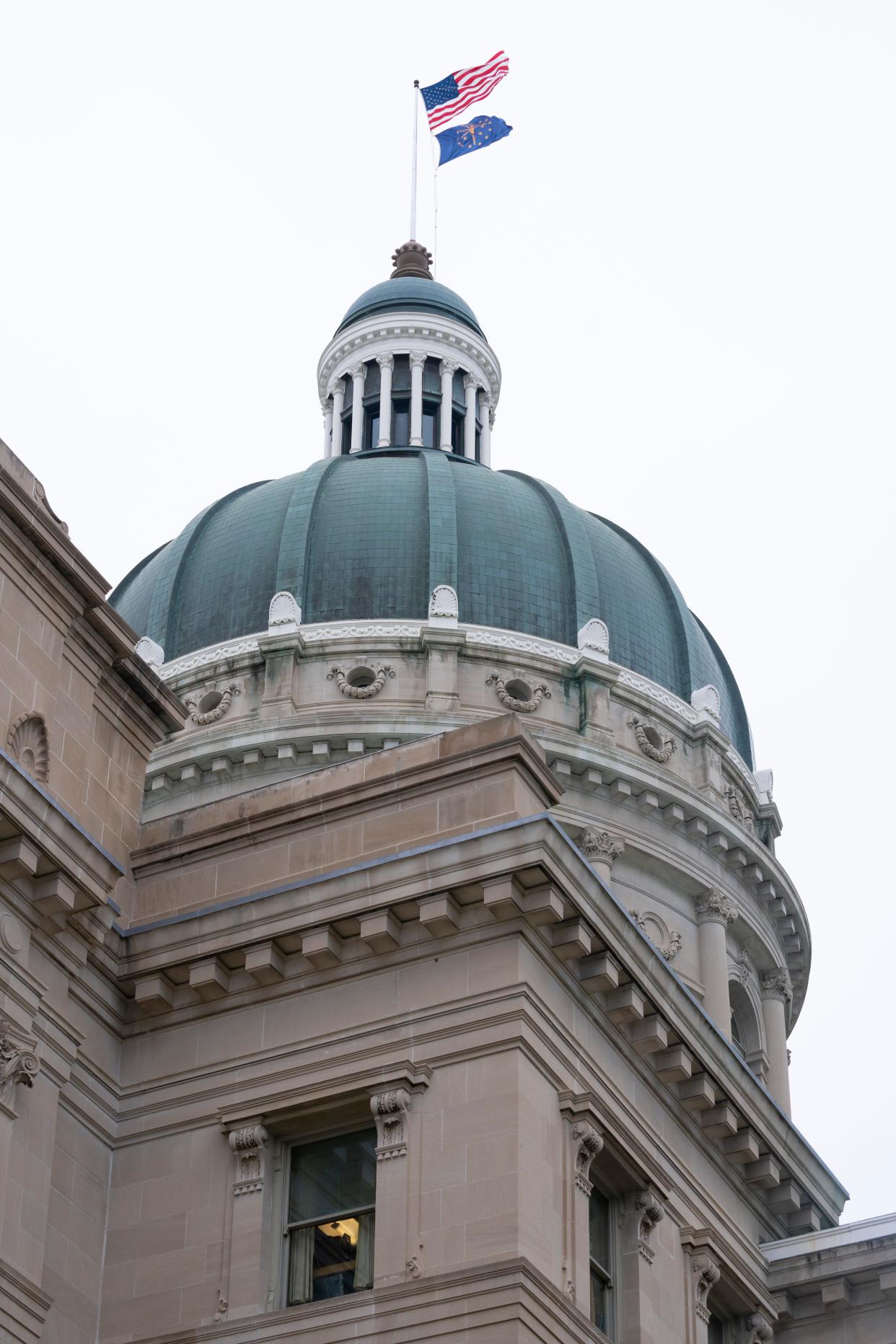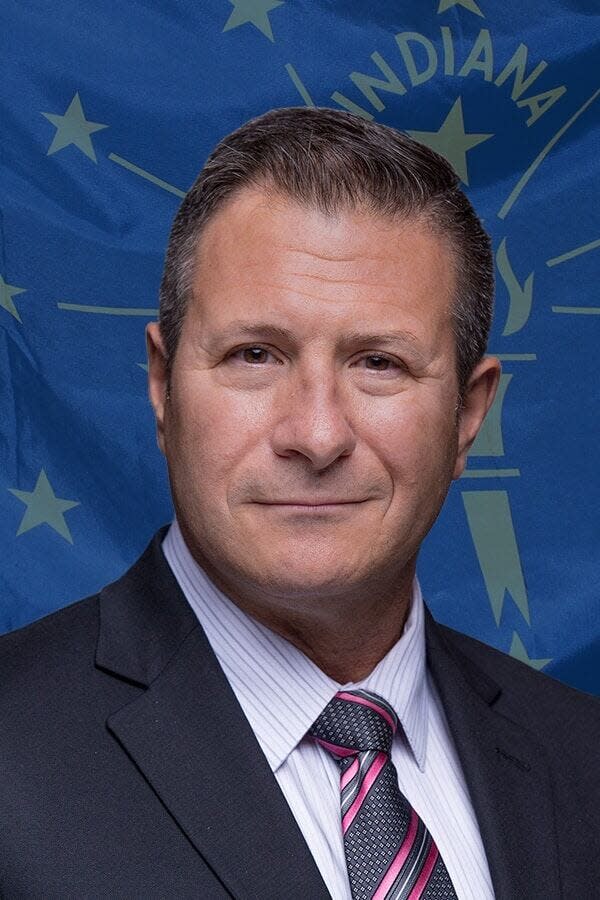3 local primaries for General Assembly seats. Some candidates share their views on issues

Every two years, Hoosiers across the state vote for members of Indiana's General Assembly, the legislative body of the state. Each election, all 100 of the seats in the Indiana House of Representatives are up for a vote, and half the 50 members of the Indiana Senate.
For this May 7 primary, St. Joseph County voters have contested primary choices for two state senate seats and one state house seat.
The Tribune is partnering with the League of Women Voters of the South Bend Area and the American Democracy Project of Indiana University South Bend to publish candidates' answers to questions on the issues. The League, with local help from the ADP, operates Vote411.org, a website with information about the candidates and their positions on key issues.
The Tribune has agreed to run candidate answers unedited, meaning any spelling, typographical or grammatical errors are the candidates' own. If there is no photo of a candidate, it's because the candidate did not provide one. The Tribune is publishing only some of the questions from contested races. Additional questions and answers, including from candidates who have no opponent in the primary, are available at Vote411.org.
Senate District 8
In Senate District 8, incumbent Republican faces a primary challenge from both Spencer England and Joe Layne. Democrat Leon P. Smith is unopposed in the primary and will face the winner in the fall. None of those four candidates had responded to the Vote411 questions by The Tribune's print deadline.
Senate District 10
Incumbent state Senator David Niezgodski faces a Democratic primary challenge from Tim Swager. No Republican has filed to run for the seat.

David Niezgodski
Occupation: State senator
Education: LaSalle High, plumbing apprenticeship
email: dniezgodski@gmail.com
Campaign phone: 574-532-6691
Website: niezgodskiforsenate.com
Facebook: facebook.com/niezgodskiforsenate

Tim Swager
Occupation: St. Joseph County treasurer
Education: MBA, Notre Dame
email: tim@swagerforstatesenate.com
Campaign phone: 574-931-8474
Website: swagerforstatesenate.com
Facebook: facebook.com/TSwager1
What is the first bill you would champion in the 2025 legislative session? Why?
Niezgodski: I have a number of important bills that I intend to file if given the opportunity to serve residents in Senate District 10 for an additional term. One issue has become glaringly apparent. Indiana’s current statutes do not provide adequate protections to tenants from landlords who show little to no concern regarding the health and well-being of individuals/families who are simply looking for suitable housing in return for their hard-earned rent dollars. I would file a bill mandating that security deposits be held in a separate escrow account. If repairs or unsuitable conditions exist, tenants would also be able to place their rent payments into rent escrow until uncompliant landlords correct unsuitable conditions. Tenants who pay their rent on time deserve healthy and safe living conditions. Good and honest landlords would be unaffected.
Swager: As a newly sworn in state senator, my first bill would aim to keep illegal guns off our streets here in South Bend. That's why I'd introduce a bill to crack down on "Bad Apple" gun dealers. These dealers exploit legal loopholes, selling firearms to criminals and fueling violence in our communities. By imposing stricter regulations and oversight on these dealers, we can stem the flow of illegal guns and enhance public safety. This isn't about infringing on Second Amendment rights but about ensuring responsible sales and protecting lives. This proposal should appeal to both sides of the aisle, as it addresses both gun safety concerns and the need for effective law enforcement measures. I spent over 3 years on Capitol Hill advising on gun violence, abortion rights, and healthcare issues. I know we can get common sense solutions done.
What is your view of Indiana's current firearms laws? What, if anything, would you change?
Niezgodski: The 2nd amendment would not be harmed if Indiana were to enact legislation for expanded background checks. Legislation requiring even minimal training of firearms would still go much further than no requirement at all. Our current laws concerning firearms also make it difficult for our state’s law enforcement agencies to properly do their jobs of protecting Indiana Hoosiers. Law enforcement agencies throughout the state pleaded with legislators not to enact permitless carry in Indiana state code and my vote heeded law enforcements’ call. Utilizing a commonsense approach to the sales of firearms and safety in their use would go a long way towards lowering senseless home accidents and tragedies. Injury and death through gun violence and the tragic outcome it brings to families calls for greater action from the General Assembly.
Swager: We could do so much better. In South Bend, Indiana, we feel the devastating effects of our state's lax gun laws, including but certainly not limited to permitless carry and allowance of extended magazines. Permitless carry increases the likelihood of firearms falling into the wrong hands and heightens the risk of gun violence in our communities. Law enforcement's own opposition to these laws reflects the self defeating nature of these extreme policies. Making our streets more dangerous, instead of safer. I want to put my previous gun policy experience to work in the hopes of finding common ground and making our communities safer for everyone.
Does Indiana adequately protect our natural environment?
Niezgodski: Indiana should be doing more. Indiana’s wetlands regulations this last legislative session were subjected to greater harm. House Bill 1383 reduced wetlands protections by shifting some Class III wetlands – which are currently protected – down to Class II, which have many less safeguards. It became the first bill that arrived on the Governor’s desk, he signed it on February 12th. Session had scarcely passed the halfway mark. The importance of wetlands to Indiana’s water resources cannot be understated. We must enact stronger regulations to protect our vital resources not less stringent ones. Representative Maureen Bauer’s success in passing legislation calling for testing for the presence of PFA’s in firefighters last year unveiled greater awareness that further oversite will also be required regarding these toxic chemicals.
Swager: Indiana faces significant environmental challenges, including reliance on coal power, agricultural runoff, and industrial emissions that pollute air and water quality and contribute to climate change. As your State Senator, I would lead the charge to a green economy. Through renewable energy and sustainable industries, we can reduce emissions and stimulate economic growth. Implementing robust environmental regulations and investing in green technologies are vital for a healthier, more resilient Indiana. Fighting climate change through a green economy will demonstrate that economic prosperity and environmental stewardship CAN coexist.
The tragic death of six children living in a house that had failed safety inspections before it burned has brought attention to the problem of safe, affordable housing in our state. For example, Indiana is one of only six states that don’t allow rent to be held in escrow if safety standards aren’t met. Should the legislature enact a similar law or any other measures to improve housing conditions for Hoosier families?
Niezgodski: Indiana should allow tenants to escrow their rent, inducing action from negligent landlords. Rent could be paid into a trust account. Negligent landlords seeking mere profit would now have reason to make properties safe and habitable. I’ll also file legislation requiring a landlord to repair/replace essential items within 48 hours after being notified by a tenant that the tenant’s rental unit is lacking essential services, including the ability for the tenant to bring an enforcement action for landlord noncompliance. I would also seek to add to these measures the contents of SB 243 which I co-authored this past session. This bill would bring further protections to tenants when landlords seek to sell a property. I would also seek co-authors on all these measures from both sides of the aisle because these issues have no political divide.
Swager: Indiana has some of the worst tenants rights laws in the nation. We've born the burden of that in South Bend with the tragic loss of the Smith Six and the ongoing battles at Cedar Glen Apartments. Rent escrow laws empower tenants, ensuring landlords promptly address maintenance issues. But we shouldn't stop there. Like many Hoosiers, I've spent my life renting and have often felt the short end of the stick from my landlord. That's why I would propose a Tenants Bill of Rights that codifies a tenants right to repairs, a habitable environment, and mandates lease transparency and fairness.
Indiana ranks poorly when it comes to maternal and infant health. What, if anything, should the legislature do about this problem?
Niezgodski: Reducing maternal and infant mortality should be one of Indiana’s most unambiguous priorities. Meaningful strides are taking place in Indiana but better outcomes for maternal and infant health will only take place when we decide to invest more resources with more urgency into our State’s overall Health. This session, I voted for a bill that requires a hospital that operates a maternity unit to ensure that a woman eligible for or receiving Medicaid assistance has the option of having a long-acting reversible subdermal contraceptive implanted after delivery and before the woman is discharged. I supported this bill, which was authored by Rep. Dr. Rita Fleming, who has delivered over 7000 babies, and Rep. Maureen Bauer, because this requirement will help postpartum women, especially women of color and people in high-risk situations.
Swager: We are fortunate to have so many champions of maternal and infant health in our community, however, Indiana still fares abysmally in this area. When elected, I will be a tireless advocate for public health. That includes expanding access to prenatal care, particularly through Medicaid and support for community health centers. Further, addressing racial disparities in birth outcomes requires targeted solutions like implicit bias training for healthcare providers and culturally competent maternal care services. By prioritizing these areas, Indiana can finally improve health outcomes for both mothers and babies.
House District 7
House District 7 Republican incumbent Jake Teshka faces a primary challenge from Timothy Jaycox. No Democrat has filed to run for the seat. Neither Teshka or Jaycox had responded to the Vote411 questions before The Tribune's print deadline.
This article originally appeared on South Bend Tribune: Where do state House candidates stand on issues? Answers for voters

